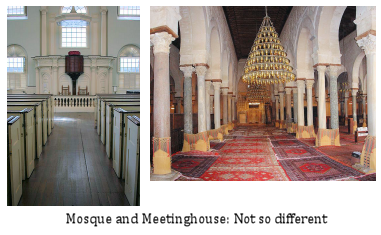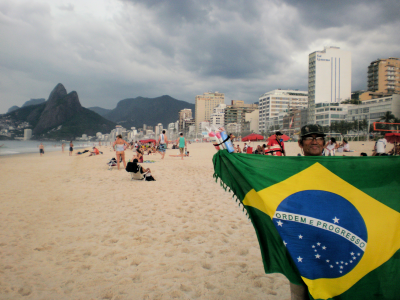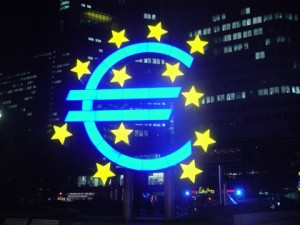David Miliband: offering a vision for the future or a defence of the past?
When David Miliband spoke at the Cambridge Union last week, was he espousing a new, more creative foreign policy or did he simply wish to defend the Bush-Blair approach of the preceding decade? David Miliband has become something of a peripatetic political being. For large parts of the parliamentary year he simply disappears and people begin to ask the ‘what’s he up to now?’ question they asked of Gordon Brown. But suddenly, almost ex nihilo, he appears again and begins a flurry of speaking engagements, interviews and articles all to do, supposedly, with a political cause he has aligned himself to. The cause that prompted him to speak at the Cambridge Union and at other universities, for example, was the …

Many Trails to Freedom: Islamic Democracy is not an Oxymoron
“I disapprove of what you say, but I will defend to the death your right to say it.” – Voltaire. Over Christmas I visited Boston and had the occasion to walk the famous freedom trail: 3 miles of sights commemorating American independence. As I walked this hallowed ground I pondered on those fighting for freedom today, in the streets of Cairo, Homs and Tunis. Having met some of these people, I wondered at the suspicion we direct at the Islamic parties now gaining power, as if we forgot our own history. American democracy was born of Puritan principles of self-government, but that did not prevent it from evolving into the (more or less) secular body it is today. Ignoring this …

Towards a Realizable Progressive Politics: A Q&A with Dr. Sophie Heine
Dr. Sophie Heine is a visiting scholar at the University of Oxford Department of Politics and International Relations, a Research Fellow at the Universtité Libre de Bruxelles and FNRS and a Wiener-Anspach Foundation Scholar; her research engages with identity politics and ideology in contemporary Europe. Here, she takes a moment to speak with Politics in Spires regarding the Occupy protests of 2011, and offers a preview of her forthcoming book. I. Your recent work, Oser penser à gauche (“Dare to think to the left”), argues that contemporary progressive politics must redefine its underpinning ideology and articulate a coherent, emancipatory platform for change. This analysis proves particularly relevant to the waves of “Occupy” protests that began in New York in October …

Political Reform in Brazil: Challenges and Opportunities
Last year was an extremely positive year for Brazilians. To begin with, Brazil overtook the United Kingdom and became the sixth largest world economy. Such growth came hand in hand with a continuing decrease in poverty and income inequality, and the strengthening of social policies by the recently elected president Dilma Rousseff (Workers Party). While her predecessor, Luiz Inácio Lula da Silva, sought to eradicate famine during his two terms in government, Dilma’s chief social ambition is to combat and eradicate extreme poverty. In line with her government slogan, “A Wealthy Country is a Country Without Poverty,” Dilma’s government transferred £5,8 billion to poor families in its first year in office. Apart from continuing progress in social policies, 2011 was …
Religious freedom, religious equality and religious establishment: a toxic brew
Religious freedom, if it means anything at all, must mean the ability of people of all faiths and none to practice their religion, to form religious associations and perhaps, if necessary, to be exempt from some civil laws, as Sikhs are relieved of the requirement to wear motorcycle helmets. These exemptions should be offered uniformly, based upon the religious beliefs and the impact of the exemption, not on the constitutional status of the religious organization involved. Religious equality means treating all religions the same: Christians, Sikhs, Hindus, Buddhists Muslims and Jews, as well as all denominations within each of them. However, religious establishment (a term that may well be essentially contestable in British constitutional law) necessarily carries privileges with it …

Cameron taking UK out of Europe without a referendum?
When the ‘make or break’ summit to save the euro finished in Brussels on Friday afternoon, David Cameron headed rapidly for the exit without the traditional end of summit press conference (making do, unusually, with only an interim pre-dawn one as the leaders stumbled out from their almost ten hours overnight talks for a short break before breakfast). As the dust settles from this critical summit, the gap between the UK and other European countries has never been wider, nor the UK’s influence closer to zero. As Tory sceptics applaud what any sane observer would call a major foreign policy disaster, could it be that Cameron is in the process of taking the UK out of the EU without a …

“The Rights of Journalism and the Needs of Audiences”: Onora O’Neill on the Rise of Corporate Media
On 21 November 2011, the Oxford Reuters Institute for the Study of Journalism hosted its annual Memorial Lecture at St. Anne’s College, exploring “The Rights of Journalism and the Needs of Audiences.” The topic shed light on the phone hacking scandals that occurred last summer, shaking both media and consumers alike, and culminating with the closure of Rupert Murdoch’s News of the World. The Institute had the distinct pleasure of hosting renowned philosopher and former President of the British Academy, Baroness Onora O’Neill, to deliver the lecture. O’Neill framed her talk around the complicated relationship between the rights to privacy and free press, emphasising that the debate between these two key features of democratic societies fails to adequately show how …
How are election preparations unfolding in the Democratic Republic of the Congo (DRC)? Hope or failure? Two perspectives.
Elections and the elusive quest for peace and stability in the eastern DRC: A perspective from the ground, based on fieldwork carried-out in North Kivu province in August and September, 2011 By Lindsay Scorgie Driving down the dusty main road of Butembo – a city of over half a million people, in the eastern DRC province of North Kivu – I hear the usual urban Congolese noises of motorcycles and lorries driving madly by. But these days there is a new sound too: shovels hitting the ground. All along the main road, construction is underway, as the central thoroughfare of Butembo is being paved for the first time. Not only is this an extremely rare sight in Congo, but it …









